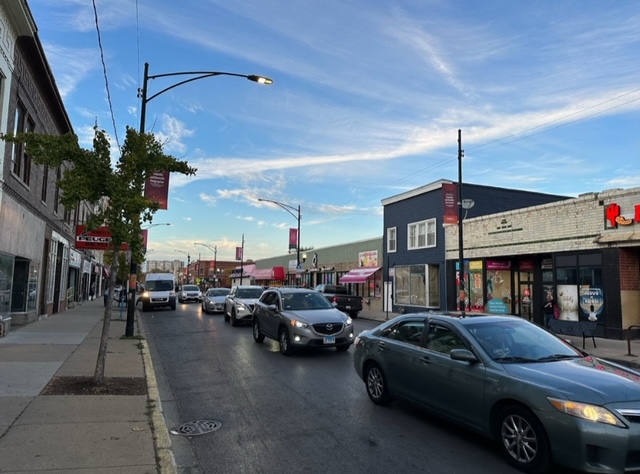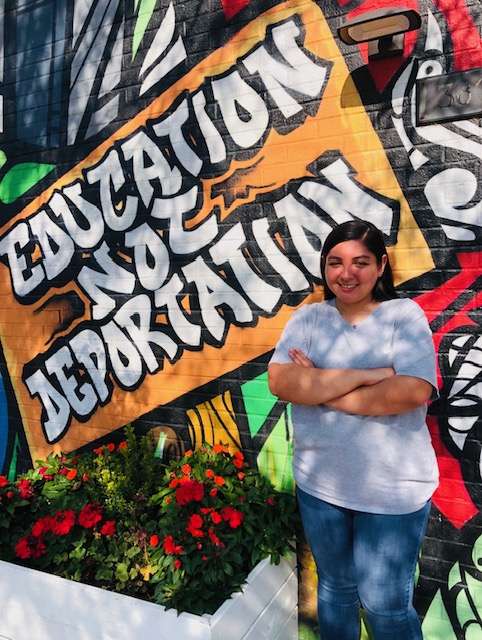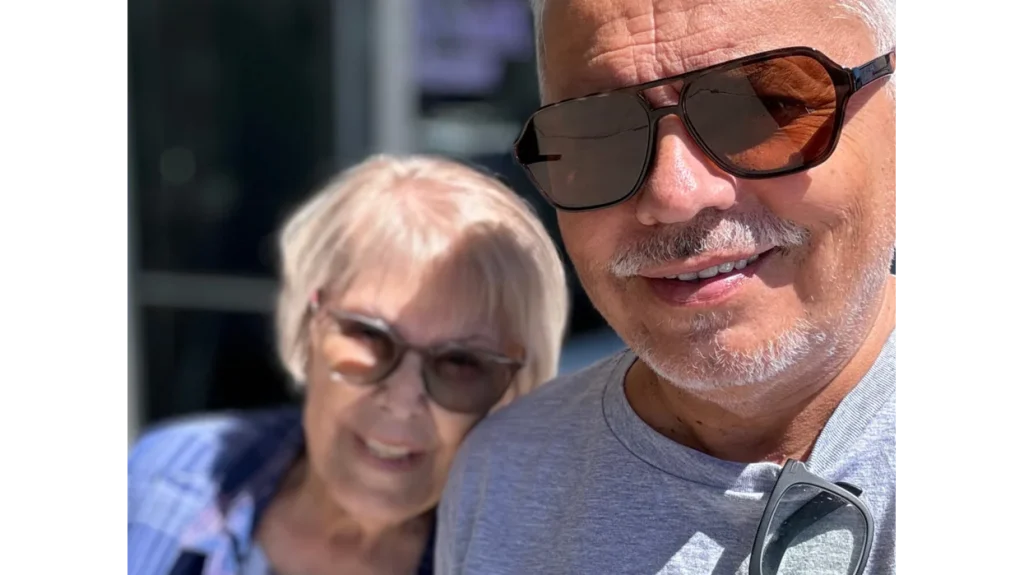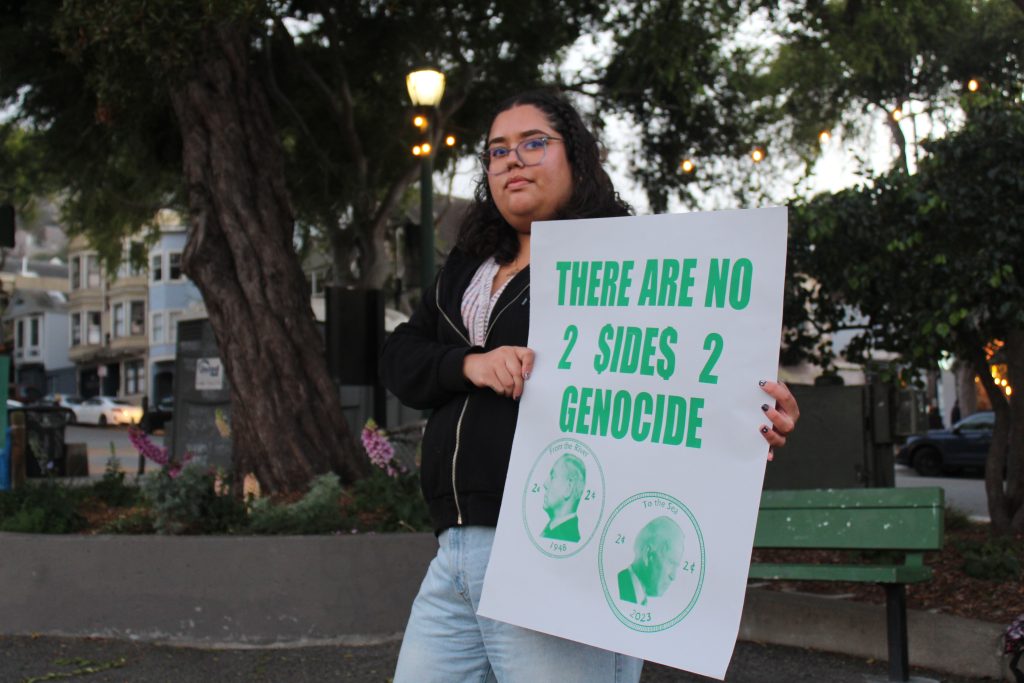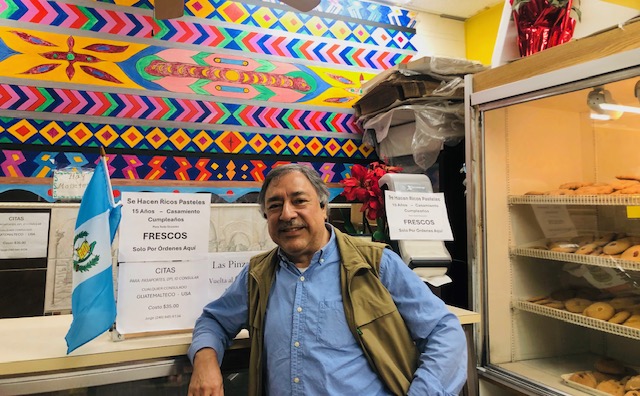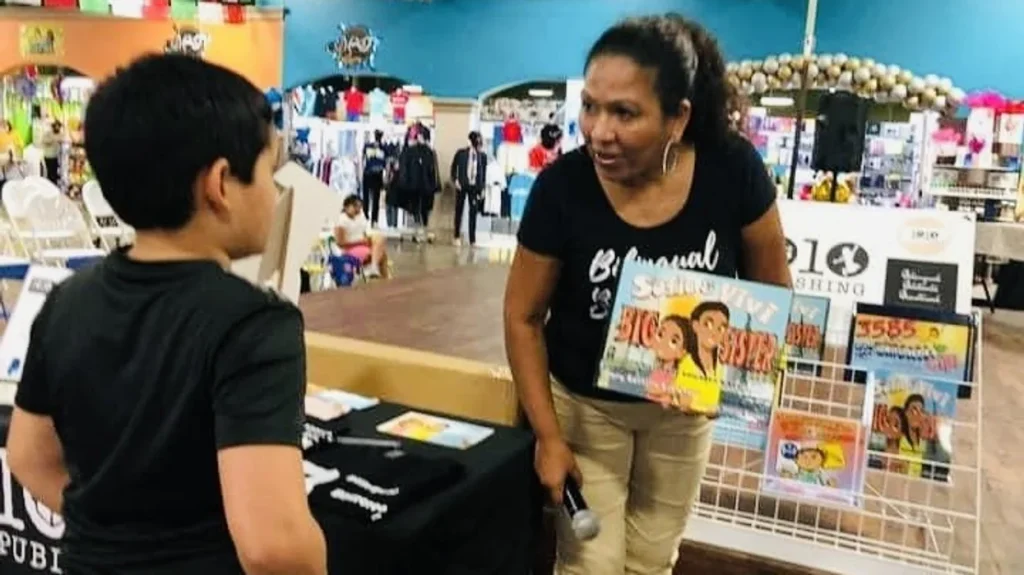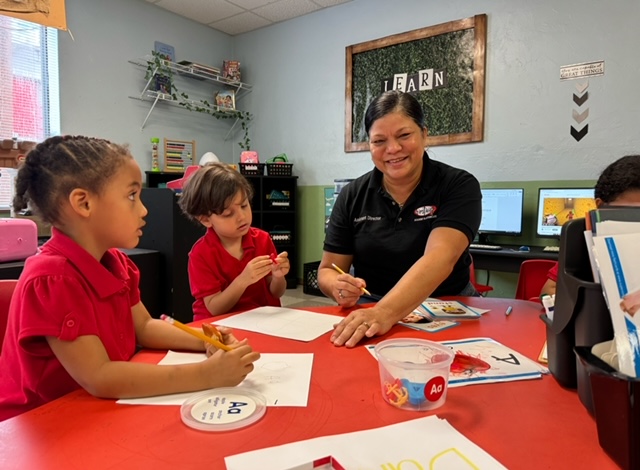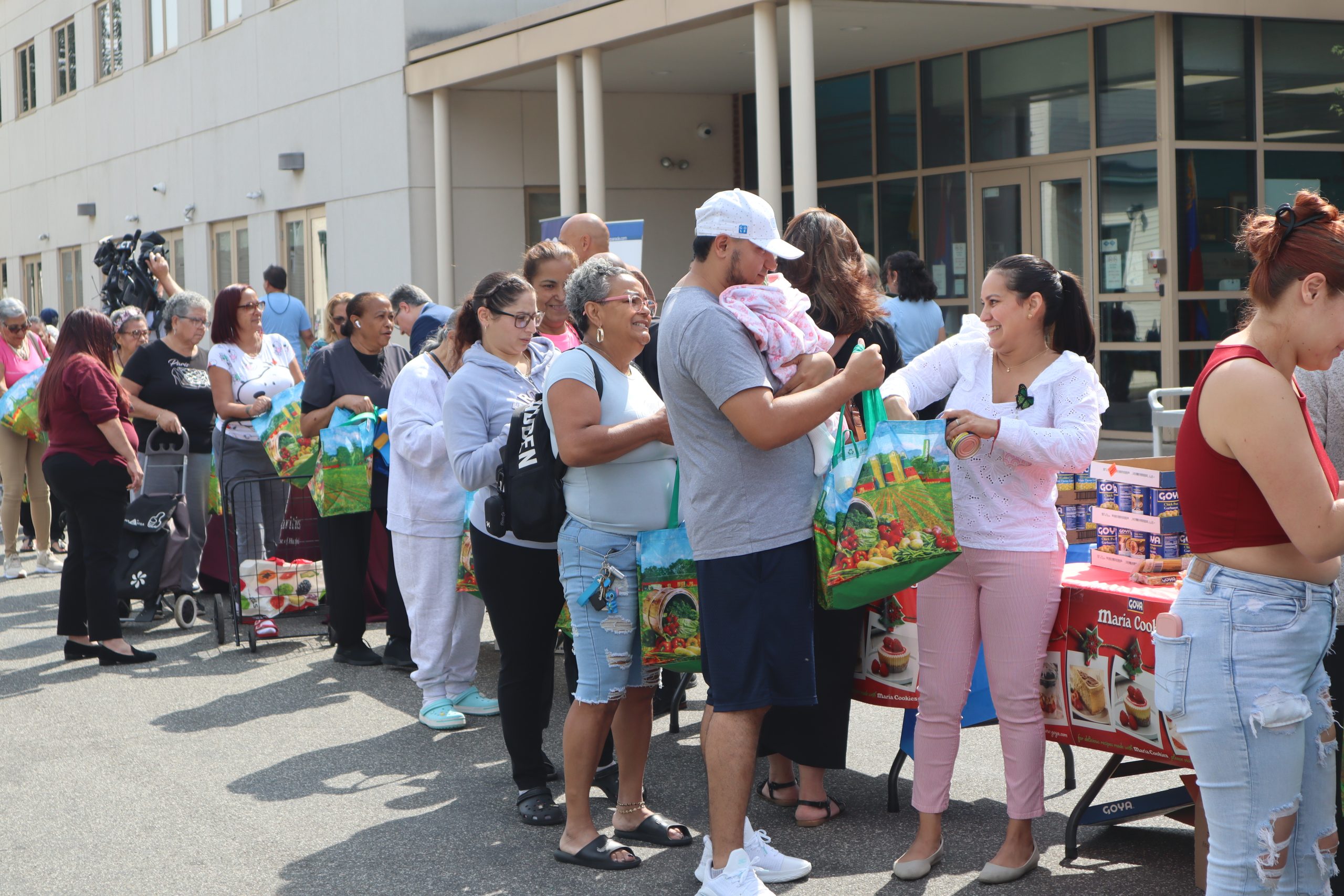Many residents of Hartford, Connecticut’s Frog Hollow neighborhood, are hesitant to vote despite being passionate and in tune with local social issues due to historical distrust. However, this community is not a monolith, and those who are voting seem confident in a particular candidate. Between those voting and not voting, food insecurity and inflation at large are key issues for many Latinx residents.
At the heart of Frog Hollow, Patient Navigator Natalie Morales stays busy at the Hispanic Health Council’s Family Wellness Center on 590 Park Street. She spends her days helping people find open food pantries, apply to state assistance programs, fill out housing applications, and secure employment.
As a working mother, Morales said her own checks go directly to paying bills. Whatever she has left over, is her budget for groceries. With increasing prices, high-quality foods and fresh produce don’t always make that budget.
“Sometimes, I don’t have enough to go out and buy $200-$300 worth of food,” she explained. “There are times that I do have to go to food pantries because it’s not enough.”
Even then, like many working parents, Morales said she cannot always make it to a food pantry because of their limited hours and her busy schedule.
“Inflation with food is very high…Yes, we have food pantries but some are not every day,” said Morales. She knows families who depend on food pantries on a regular basis and pointed out that pantries offer more non-perishable foods rather than meats, proteins, and produce that contain essential nutrients.
In 2023, about 30% of Hartford residents said they experienced food insecurity—more than half of these individuals identified as Latino and/or Black—compared to the statewide average of 14%, according to DataHaven’s annual Hartford Equity Profile.
Passionate about social issues in her local community, Morales said she supports the council’s work on civic engagement—however, she does not plan on casting a ballot this fall. Morales said she has not voted in many years and has not seen a difference whether she does or does not vote.
At a food distribution event in September, Hartford resident Melanie Segui echoed that inflation has impacted her this past year but she does not plan on voting. “I just let others choose,” she commented.
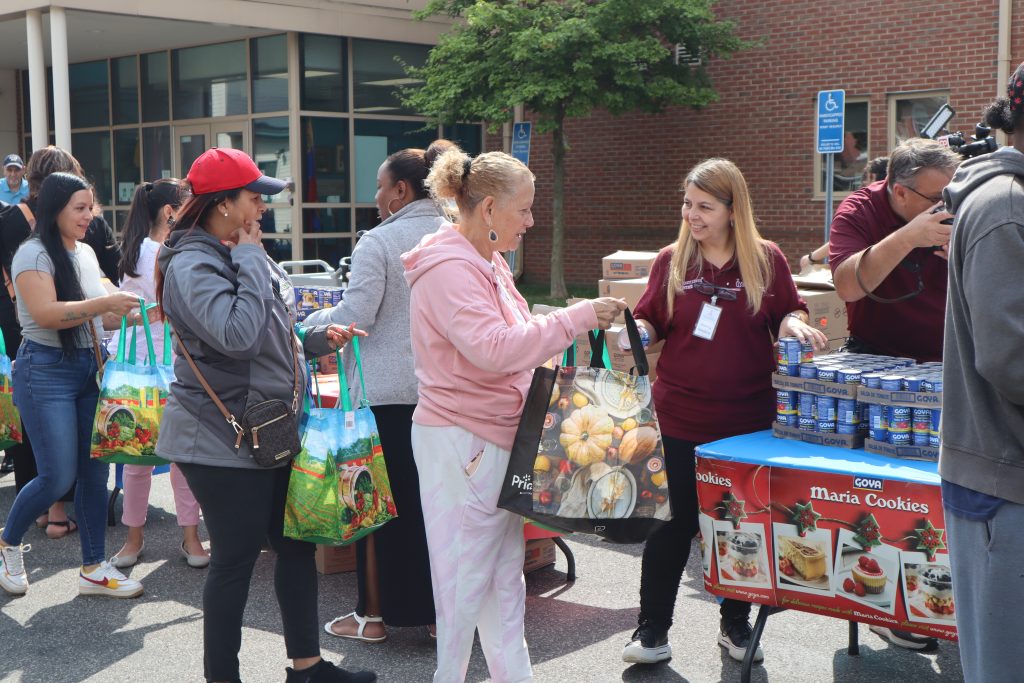
Parade. Photo by Belén Dumont.
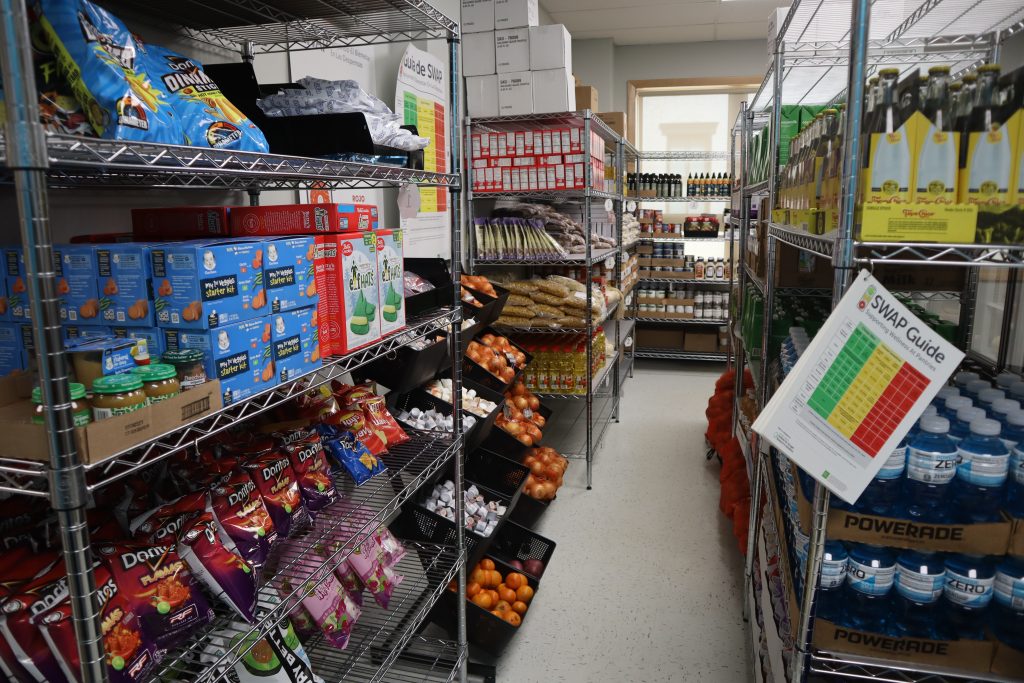
Photo by Belén Dumont.
In the 2020 presidential election, about 50% of Hartford’s eligible voters cast their ballot —compared to the state average of 80%. During the 2022 state election, around 26% Hartford residents voted, with the state average being 58%.
A historical distrust between residents and political processes continues to be a major challenge in the community, said Policy Advocacy Manager Megan Scharrer of the Hispanic Health Council. In response, the council has partnered with local community-serving organizations to host two listening sessions on how to best civically inform and motivate potential voters in the area.
Through these community discussions, Scharrer learned that residents prefer to learn about the voting process through in-person conversations with other members of the community. In response, the council has organized a team of about 20 volunteers who go canvassing door-to-door in various Hartford neighborhoods to reach potential voters.
Between those voting and not voting, Scharrer shared that food insecurity is a top concern for local residents, along with affordable housing, quality healthcare access, community safety, and protecting workers’ rights.
“Access to food…that’s a really big thing, access to actually healthy food in the neighborhood,” said Scharrer.
Although there are Frog Hollow residents who are hesitant to vote, this community is not a monolith and those who are voting seem confident in their decision.
On a sunny Saturday in October, seven volunteers reached out to around 200 households in the Frog Hollow community. Scharrer shared that residents were overall receptive to speaking about election day—many had questions about voting registration and early voting. Although there were residents who felt as if their vote doesn’t matter,
While some residents said they feel as if their vote doesn’t matter, others expressed great excitement for the elections, said Scharrer.
Hartford Resident Pedro Pimienta is ready to cast his ballot this November. He has watched his community adapt to the highs and lows of the local economy since emigrating from Colombia sixty years ago and said that recent inflation will strongly influence his vote.
“We got to be careful this time,” said Pimienta. “We have to [be] conscious when we vote because it’s our future.”
Although Pimienta receives social security and pension benefits, he said it’s not enough to cover all his expenses. In the past few years, inflation has impacted many aspects of Pimienta’s life including the cost of groceries, insurance”, home electricity, and his mortgage—which has gone up from $700 last year to $1200 this year.
“Right now, the cost of living for me is very high,” shared Pimienta. “Every month, when I pay all my bills, I don’t have enough money for food. Every time I go to the supermarket, I think ‘Oh, they made a mistake’ and they say ‘No, everything is correct’…I remember I used to buy a rotisserie chicken for $5.99 and now it’s $10.99.”
Residents have emphasized how the qualifications for assistance programs, like The Supplemental Nutrition Assistance Program (SNAP), are specific and exclusionary. For those who do receive SNAP benefits, the amount given is not enough at times due to inflation.
A few residents, who are eligible, have commented that the amount given is not enough at times since SNAP benefits are not increasing at the same rate as inflation.
“Food is very very expensive,” said Morales. “Even when a person gets food stamps from the state it’s still hard because if…that’s all you get, you have to know how to manage your money to buy the food that you need.”
About 37% (9,206) of Frog Hollow households were participating in the SNAP program in 2022, according to the U.S. Census Bureau. While about 10.6% (1,725) of households experiencing poverty were not receiving SNAP benefits.
With these issues in mind, community organizations are continuing their civic engagement efforts this fall with nonpartisan, door-to-door canvassing and informational events with the hopes of increasing voter turnouts and civic participation year-round.
“We’ve definitely tried to also teach people that it doesn’t just stop at voting,” said Scharrer. “There are ways to get civically involved and that’s our goal, making civic engagement a part of everyday life.”
SUGGESTION: The impact of the Latino vote
